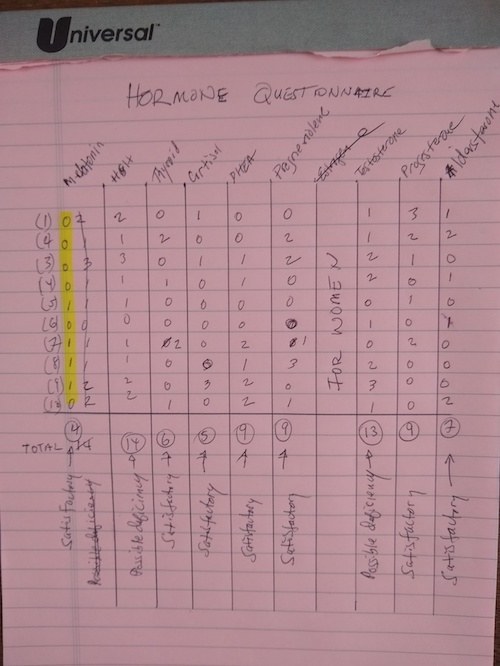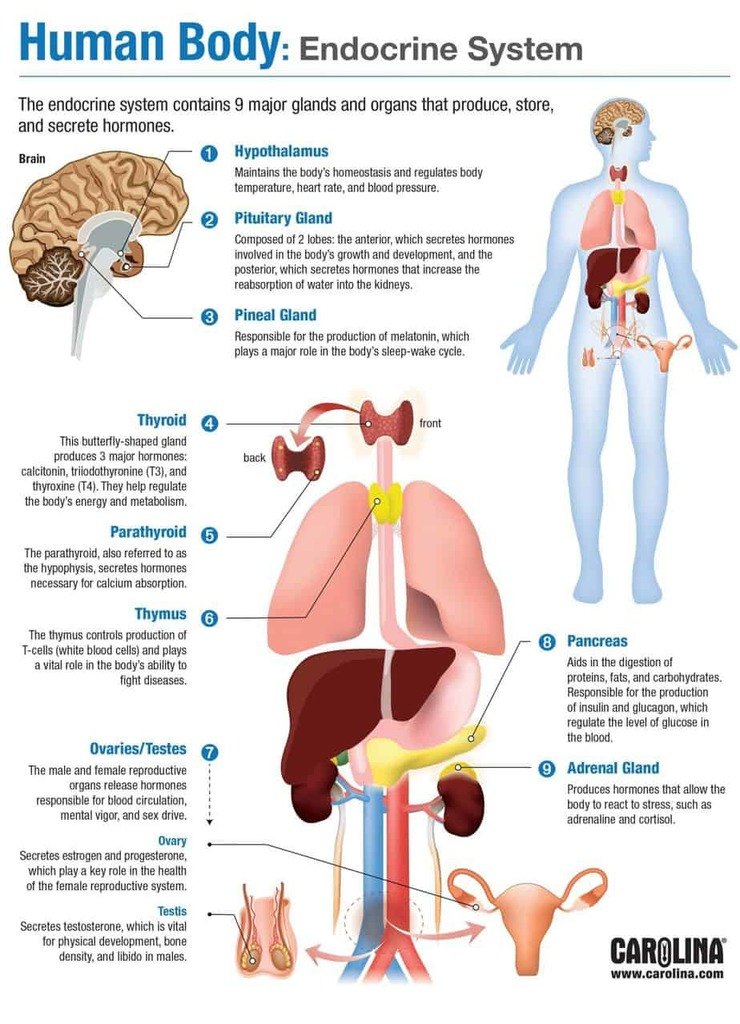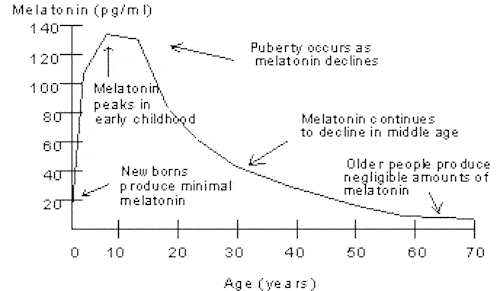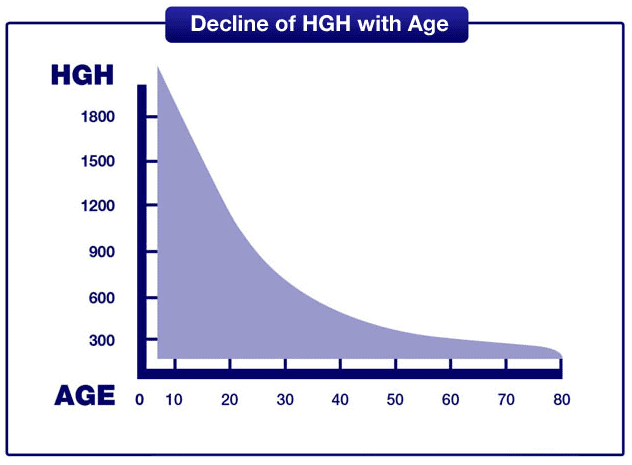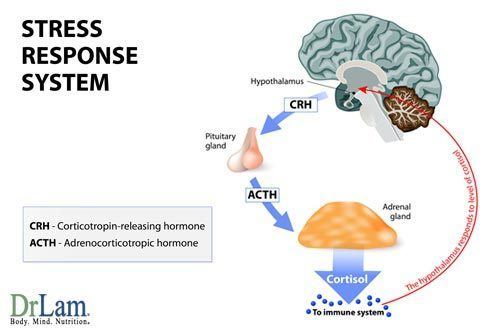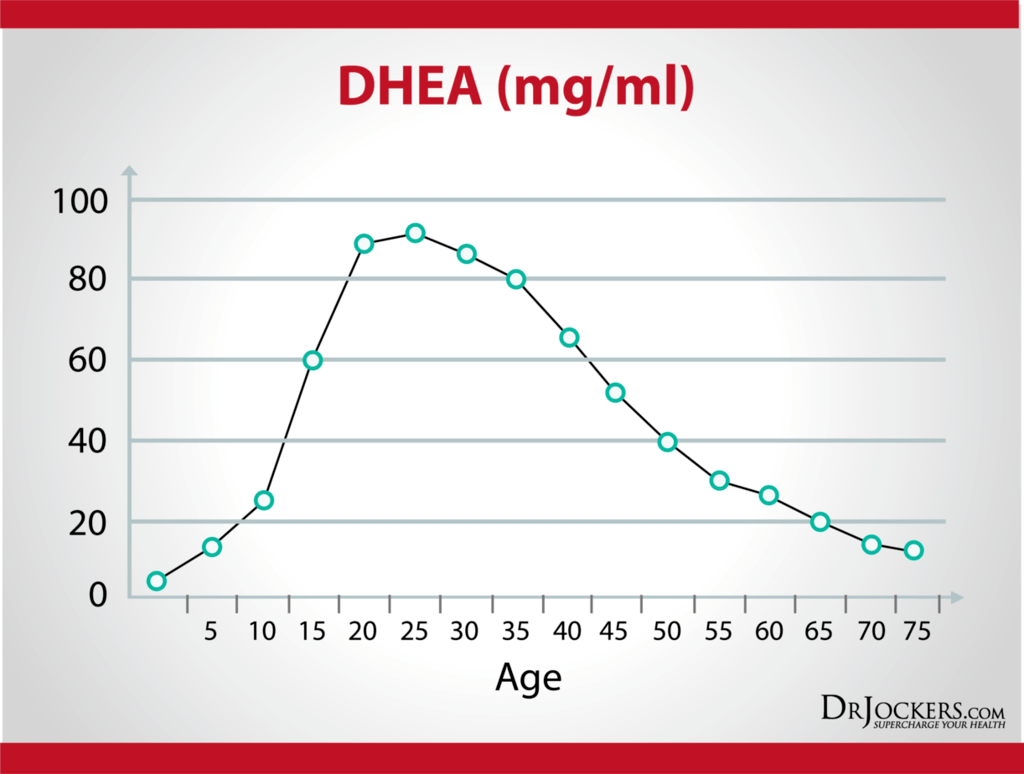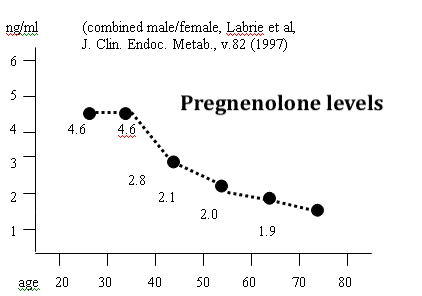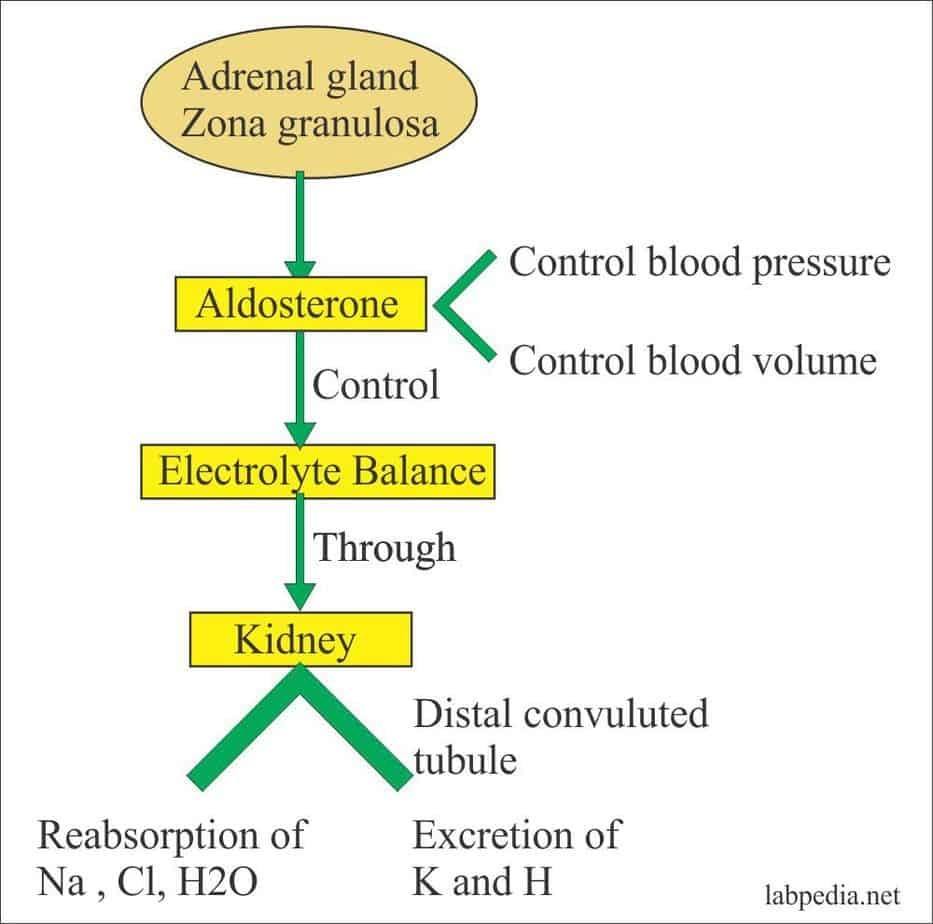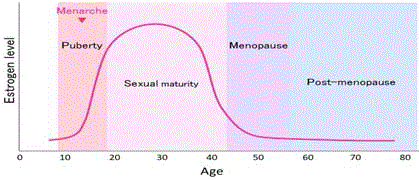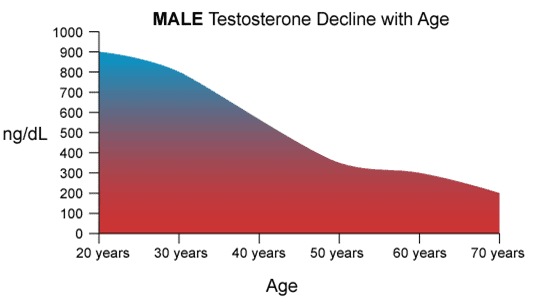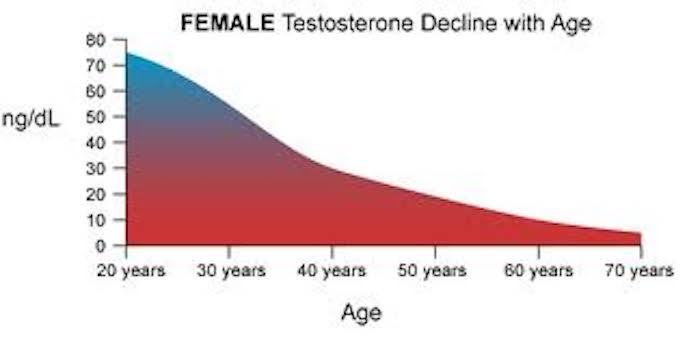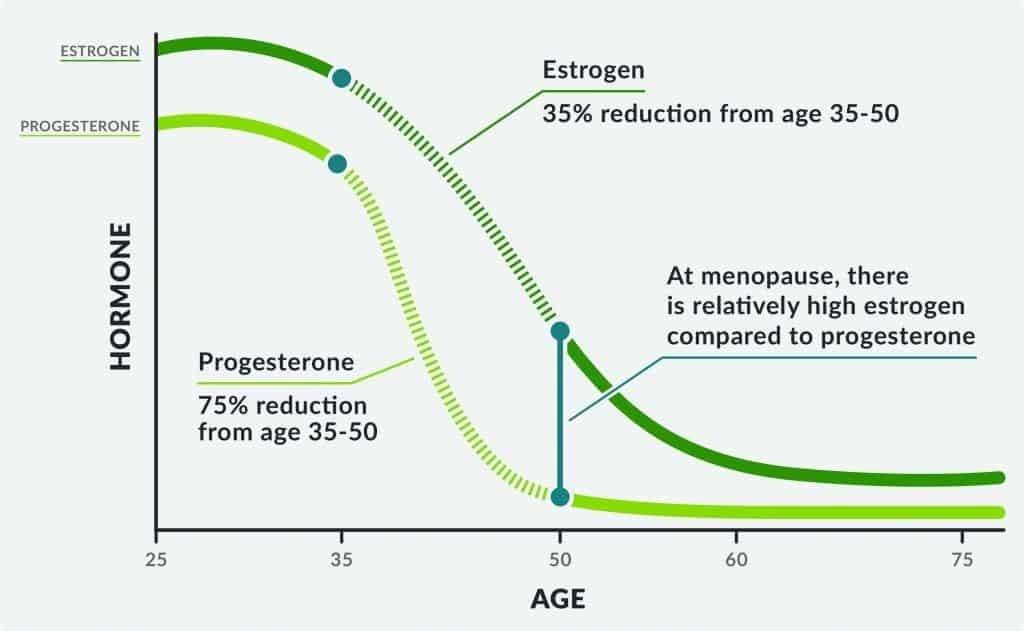Take This Hormone Questionnaire by Dr. Thierry Hertoghe
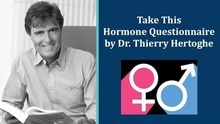
This Hormone Questionnaire designed by third-generation endocrinologist Dr. Thierry Hertoghe will give you insight about any hormone imbalances you may have, which is very common as we age. You can optimize your hormones, but first you need to identify the problem areas.
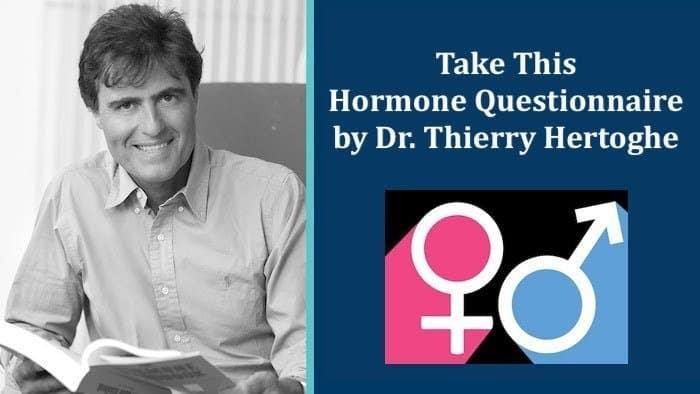
This Hormone Questionnaire is part of the "age-proof" online video course I'm sharing as I develop it, sans the video. If you're not already a Subscriber click here to be notified when the course goes live.
The Hormone Questionnaire below covers ten hormones for women and nine for men. It was carefully designed by Thierry Hertoghe, M.D., a world renown, Brussels-based third generation endocrinologist.
The man knows hormones; he even has a medical school.
Dr. Hertoghe has developed a Hormone Questionnaire you can take yourself to get a sense if you’re experiencing inadequate levels of each hormone; that said, in order to tally accurate answers, I recommend that you check your inevitably biased answers with someone who knows you well.
Here’s a pic of my Hormone Questionnaire answers, which indicates I may have some work to do with Human Growth Hormone (HGH) and Testosterone:
You’ll see the questions to which those numbers above relate in the Hormone Questionnaire for each of the ten hormones covered; namely:
- Melatonin
- Growth Hormone
- Thyroid
- Cortisol
- DHEA
- Pregnenolene
- Aldosterone
- Estrogen
- Testosterone (both men and women)
- Progesterone (both men and women)
In the the first tab below, you may watch the video where Dr. Hertoghe explains his take on hormone therapy, and in the second tab there’s an illustration of our endocrine system, which controls hormones.
Here are some of the salient points that Dr. Hertoghe makes in his video:
- It’s safe to do hormone therapy if under the guidance of an experienced doctor with the relevant expertise.
- Our hormone secretions decrease beginning after 30 years of age, resulting in poorer organ function, less energy and muscle tone, and more depression.
- Human growth hormone, sex hormones and thyroid function decline most precipitously.
- Declining hormones increase the chances of getting hypertension, arteriosclerosis, diabetes, osteoporosis, some cancers and obesity.
- Treatment must be personalized, otherwise hormone therapy is unsafe.
Frankly, from my reading about hormones, I think you need to be circumspect before jumping into hormone therapy that involves hormone replacement for three reasons:
- Not all experts agree that hormone therapy is safe and advisable.
- Any particular hormone you use may make your body less able to make its own.
- Once you begin hormone therapy, you typically have to keep doing it, and it’s expensive.
Keep those points in mind as you take the Hormone Questionnaire below, and if you find that the Hormone Questionnaire indicates that you have a deficiency in any particular hormone, then:
- Ask your physician for a test, or get one here for men and here for women; and
- If deficient, first try the non-pharmaceutical interventions I suggest below each Hormone Questionnaire.
Note:
That said, let’s dive in. You will need a pen and paper to record how you score given any particular question and the numerical weight given it.
Test yourself for Melatonin Deficiency
The Mayo Clinic says this about melatonin:
Melatonin is a hormone in your body that plays a role in sleep. The production and release of melatonin in the brain is connected to time of day, increasing when it’s dark and decreasing when it’s light.
Melatonin production declines with age.
Melatonin is also available as a supplement, typically as an oral tablet.
People commonly use melatonin for sleep disorders, such as insomnia and jet lag. Unlike with many sleep medications, you are unlikely to become dependent on melatonin, have a diminished response after repeated use (habituation) or experience a hangover effect.
| Signs and symptoms of Melatonin Deficiency | No Never | Little Rarely | Moderate Regularly | Much Often | Extreme Constant | ||||
| 1. | I look older than I am | 0 | 1 | 2 | 3 | 4 | |||
| 2. | I have trouble falling asleep at night | 0 | 1 | 2 | 3 | 4 | |||
| 3. | I wake up during the night | 0 | 1 | 2 | 3 | 4 | |||
| 4. | … and I can’t get back to sleep | 0 | 1 | 2 | 3 | 4 | |||
| 5. | My mind is busy with anxious thoughts while I’m trying to fall asleep | 0 | 1 | 2 | 3 | 4 | |||
| 6. | My feet are too hot at night | 0 | 1 | 2 | 3 | 4 | |||
| 7. | When I get up, I don’t feel rested | 0 | 1 | 2 | 3 | 4 | |||
| 8. | I feel like I’m living out-of-synch with the world, going to bed late and waking up late | 0 | 1 | 2 | 3 | 4 | |||
| 9. | I can’t tolerate jet lag | 0 | 1 | 2 | 3 | 4 | |||
| 10. | I smoke, drink and/or use a beta- blocker or a sleep aid | 0 | 1 | 2 | 3 | 4 | |||
| Total | |||||||||
| Overall total | |||||||||
| Score | 10 or less | Satisfactory level | |||||||
| Between 10 and 20 | Possible melatonin deficiency
|
||||||||
| 21 or more | Probable melatonin deficiency | ||||||||
If you find that you may have a melatonin deficiency, you could check to see if your doctor agrees, or simply take a melatonin supplement, given it’s safe.
A melatonin brand with a good reputation is made by Dr Walter Pierpaoli called Melatonin MZS. Dr. Pierpaoli also authored the book, The Melatonin Miracle.
Test yourself for Growth Hormone Deficiency
Growth hormone (GH) is a small protein that is made by the pituitary gland and secreted into the bloodstream. Its production is controlled by a complex set of hormones produced in the hypothalamus of the brain and in the intestinal tract and pancreas.
GH rises during childhood, peaks during puberty, and declines from middle age onward.
Harvard Health has an even-keeled article that quickly examines some benefits, facts and fictions about human growth hormone. The article concludes with these points:
- GH does not appear to be either safe or effective for young athletes or healthy older men.
- Exercise and diet can slow down the decline in GH:
- Strength train two to three times a week
- Ingest 0.36 grams of protein per pound (0.45 kilograms) of body weight; even big men don’t need more than 65 grams per day. (I would add, unless you exercise intensely and often.)
| Signs and symptoms of Growth Hormone Deficiency | No Never | Little Rarely | Moderate Regularly | Much Often | Extreme Constant | ||||
| 1. | My hair is thinning | 0 | 1 | 2 | 3 | 4 | |||
| 2. | My cheeks sag | 0 | 1 | 2 | 3 | 4 | |||
| 3. | My gums are receding | 0 | 1 | 2 | 3 | 4 | |||
| 4. | My abdomen is flabby, I’ve got a “spare tire” | 0 | 1 | 2 | 3 | 4 | |||
| 5. | My muscles are slack | 0 | 1 | 2 | 3 | 4 | |||
| 6. | My skin is thin and/or dry | 0 | 1 | 2 | 3 | 4 | |||
| 7. | It’s hard to recover after physical activity | 0 | 1 | 2 | 3 | 4 | |||
| 8. | I feel exhausted | 0 | 1 | 2 | 3 | 4 | |||
| 9. | I don’t like the world. I tend to isolate myself. | 0 | 1 | 2 | 3 | 4 | |||
| 10. | I feel continuously anxious and worried | 0 | 1 | 2 | 3 | 4 | |||
| Total | |||||||||
| Overall total | |||||||||
| Score | 10 or less | Satisfactory level | |||||||
| Between 10 and 20 | Possible growth hormone deficiency | ||||||||
| 21 or more | Probable growth hormone deficiency | ||||||||
Want to generate more GH naturally?
As mentioned, add resistance training to your exercise regimen. You can also do some high intensity interval training. Read:
Test Yourself for Thyroid Deficiency
MedicinePlus tells us that the thyroid is a butterfly-shaped endocrine gland in your neck (just above your collarbone) that makes hormones. Thyroid hormones control the rate of many activities in your body. These include how fast you burn calories and how fast your heart beats. All of these activities are your body’s metabolism.
Most people with thyroid issues have hypothyroidism (a condition in which the thyroid gland is not able to produce enough thyroid hormone, slowing metabolism), as opposed to hyperthyroidism (when your thyroid gland produces too much of the hormone thyroxine, accelerating metabolism). The majority of people with hypothyroidism have Hashimoto’s Disease, an autoimmune disorder in which your immune system creates antibodies that damage your thyroid gland. It’s the most common type of hypothyroidism in the U.S.
| Signs and symptoms of Thyroid Deficiency | No Never | Little Rarely | Moderate Regularly | Much Often | Extreme Constant | ||||
| 1. | I’m sensitive to cold | 0 | 1 | 2 | 3 | 4 | |||
| 2. | My hands and feet are always cold | 0 | 1 | 2 | 3 | 4 | |||
| 3. | In the morning my face is puffy and my eyelids are swollen | 0 | 1 | 2 | 3 | 4 | |||
| 4. | I put on weight easily | 0 | 1 | 2 | 3 | 4 | |||
| 5. | I have dry skin | 0 | 1 | 2 | 3 | 4 | |||
| 6. | I have trouble getting up in the morning | 0 | 1 | 2 | 3 | 4 | |||
| 7. | I feel more tired at rest than when I am active | 0 | 1 | 2 | 3 | 4 | |||
| 8. | I am constipated | 0 | 1 | 2 | 3 | 4 | |||
| 9. | My joints are stiff in the morning | 0 | 1 | 2 | 3 | 4 | |||
| 10. | I feel like I’m living in slow-motion | 0 | 1 | 2 | 3 | 4 | |||
| Total | |||||||||
| Overall total | |||||||||
| Score | 10 or less | Satisfactory level | |||||||
| Between 10 and 20 | Possible thyroid deficiency | ||||||||
| 21 or more | Probable thyroid deficiency | ||||||||
There are three “medicines” available to help your thyroid produce more hormones:
(1) The synthetic, man-made hormones typically prescribed by Endocrinologists, such as levothyroxine (Levoxyl, Synthroid, Tirosint, Unithroid, Unithroid Direct), says WebMD. It acts just like the hormone your thyroid gland normally makes.
(2) A glandular potion of actual thyroid gland made from pigs (porcine) or cows (bovine). Some endocrinologists and many naturopaths prescribe these. You can experiment with thyroid glandular (porcine, bovine) forms of thyroid hormones, but you must be studious about slowly increasing the dose based on careful records detailing how you feel at each dose.
(3) Thyroid support nutrients and herbs, such as Thyroid Support Complex made by Pure Encapsulations, which are designed to help your thyroid produce hormones.
Test yourself for Cortisol Deficiency
Cortisol is a steroid hormone that regulates a wide range of vital processes throughout the body, including metabolism and the immune response — but most of us associate it with its role in helping the body respond to stress.
The Society of Endocrinology tells us that cortisol is made in the cortex of the adrenal glands and then released into the blood, which transports it all round the body. Almost every cell contains receptors for cortisol and so cortisol can have lots of different actions depending on which sort of cells it is acting upon. These effects include controlling the body’s blood sugar levels and thus regulating metabolism, acting as an anti-inflammatory, influencing memory formation, controlling salt and water balance, influencing blood pressure and helping development of the fetus.
| Signs and symptoms of Cortisol Deficiency | No Never | Little Rarely | Moderate Regularly | Much Often | Extreme Constant | ||||
| 1. | My face looks thinner | 0 | 1 | 2 | 3 | 4 | |||
| 2. | My friends call me skinny | 0 | 1 | 2 | 3 | 4 | |||
| 3. | I have eczema, psoriasis, urticaria (“nettle rash”), skin allergies or other rashes. | 0 | 1 | 2 | 3 | 4 | |||
| 4. | My heart beats quickly | 0 | 1 | 2 | 3 | 4 | |||
| 5. | My blood pressure is low | 0 | 1 | 2 | 3 | 4 | |||
| 6. | I crave salt or sugar (to the extent of bingeing) | 0 | 1 | 2 | 3 | 4 | |||
| 7. | I have digestive problems | 0 | 1 | 2 | 3 | 4 | |||
| 8. | I have allergies (hay fever, asthma, etc.) | 0 | 1 | 2 | 3 | 4 | |||
| 9. | I’m stressed out | 0 | 1 | 2 | 3 | 4 | |||
| 10. | I’m easily confused | 0 | 1 | 2 | 3 | 4 | |||
| Total | |||||||||
| Overall total | |||||||||
| Score | 10 or less | Satisfactory level | |||||||
| Between 10 and 20 | Possible cortisol deficiency | ||||||||
| 21 or more | Probable cortisol deficiency | ||||||||
Oftentimes, people who feel chronically tired think they have a thyroid or adrenal issue. By yourself, it’s difficult to discern which one may be problematic for you, which again suggests that self-diagnosing a hormonal issue via a Hormone Questionnaire is fraught with misinterpretation. But it’s a good first step to indicate what you need to investigate with your Physician.
If your doctor’s guidance includes the use of supplements to improve adrenal function and reduce chronic stress, consider trying Pure Encapsulations Adrenal, which contains whole adrenal and adrenal cortex glandular extracts, and/or MegaFood’s Adrenal Strength, which contains ashwagandha and rhodiola (both adaptogens), reishi mushrooms, holy basil and other effective ingredients.
Test yourself for DHEA Deficiency
DHEA (dehydroepiandrosterone) is one of several hormones made by the adrenal glands, which are perched on the kidneys. The body converts DHEA into estrogen, testosterone, and other less well-known hormones; thereby, it acts as a precursor to facilitate male and female sex hormone development, including testosterone and estrogen. (Precursors are substances that are converted by the body into a hormone.)
DHEA also activates receptors that influence how we metabolize and store fat. For more about DHEA and fat, read this Harvard Health article.)
DHEA levels peak in early adulthood, and then slowly fall as you age.
| Signs and symptoms of DHEA Deficiency | No Never | Little Rarely | Moderate Regularly | Much Often | Extreme Constant | ||||
| 1. | My hair is dry | 0 | 1 | 2 | 3 | 4 | |||
| 2. | My skin and eyes are dry | 0 | 1 | 2 | 3 | 4 | |||
| 3. | My muscles are flabby | 0 | 1 | 2 | 3 | 4 | |||
| 4. | My belly is getting fat | 0 | 1 | 2 | 3 | 4 | |||
| 5. | I don’t have much hair under my armpits (0=plenty of hair / 4=hairless) | 0 | 1 | 2 | 3 | 4 | |||
| 6. | I don’t have much hair in the pubic area (0=plenty of hair / 4=hairless) | 0 | 1 | 2 | 3 | 4 | |||
| 7. | I don’t have much fatty tissue in the pubic area (Flat “mount of Venus” in women). (0=padded/ 4= flat) | 0 | 1 | 2 | 3 | 4 | |||
| 8. | My body doesn’t have much of a special scent during sexual arousal | 0 | 1 | 2 | 3 | 4 | |||
| 9. | I can’t tolerate noise. | 0 | 1 | 2 | 3 | 4 | |||
| 10. | My libido is low | 0 | 1 | 2 | 3 | 4 | |||
| Total | |||||||||
| Overall total | |||||||||
| Score | 10 or less | Satisfactory level | |||||||
| Between 10 and 20 | Possible DHEA deficiency | ||||||||
| 21 or more | Probable DHEA deficiency | ||||||||
DHEA supplements are widely available and are used by some people to improve sex drive, build muscle, fight the effects of aging, and improve some health conditions. But there isn’t much evidence for many of these claims, says WebMD.
If you do try DHEA supplementation:
- Don’t take more than 25 mg per day until you record its effect
- Keep notes on dosage and physical/mental effects
DHEA by Pure Encapsulations is a good brand and offers it in 25 mg capsules.
Test yourself for Pregnenolone Deficiency
The USADA tells us that Pregnenolone is a hormone naturally produced in the body by the adrenal gland. It’s made from cholesterol, and is the starting material in the production of testosterone, progesterone, cortisol, estrogen and other hormones.
Because the body uses it biochemically as starting material, pregnenolone is sometimes referred to as a “precursor” or “pro-hormone”.
| Signs and symptoms of Pregnenolone Deficiency | No Never | Little Rarely | Moderate Regularly | Much Often | Extreme Constant | |||
| 1. | I have memory loss | 0 | 1 | 2 | 3 | 4 | ||
| 2. | My joints hurt (fingers, wrists, elbows, feet, ankles, knees) | 0 | 1 | 2 | 3 | 4 | ||
| 3. | I’m feeling a bit drained and I have a hard time handling stress | 0 | 1 | 2 | 3 | 4 | ||
| 4. | I don’t see colors as brightly as before. | 0 | 1 | 2 | 3 | 4 | ||
| 5. | I have lost interest in art; I don’t appreciate art as much anymore | 0 | 1 | 2 | 3 | 4 | ||
| 6. | I don’t have much hair under my arms or in the pubic area
(0=plenty of hair / 4=hairless) |
0 | 1 | 2 | 3 | 4 | ||
| 7. | My muscles are flabby | 0 | 1 | 2 | 3 | 4 | ||
| 8. | I have abundant, light-colored urine during the day | 0 | 1 | 2 | 3 | 4 | ||
| 9. | I have low blood pressure | 0 | 1 | 2 | 3 | 4 | ||
| 10. | I crave salty foods | 0 | 1 | 2 | 3 | 4 | ||
| Total | ||||||||
| Overall total | ||||||||
| Score | 10 or less | Satisfactory level | ||||||
| Between 10 and 20 | Possible pregnenolone deficiency | |||||||
| 21 or more | Probable pregnenolone deficiency | |||||||
Although pregnenolone supplements may be bought over-the-counter, you should seek the advice of your doctor before doing so. Too many hormones may be produced if you take pregnenolone along with progesterone, testosterone or estrogen pills.
It also may affect your hormonal balance significantly, resulting in side effects, such as mild rashes, headaches, mood swings, insomnia, irritability, anxiety, acne, facial hair growth, hair loss and palpitations.
If you do intend to supplement, try Pregnenolone by Pure Encapsulations. It offers a 10 mg dose so you can begin low and gradually increase the dose if warranted.
Test yourself for Aldosterone Deficiency
Wikipedia says: Aldosterone is a steroid hormone produced by the adrenal cortex in the adrenal gland. It is essential for sodium conservation in the kidney, salivary glands, sweat glands and colon. Aldosterone increases the reabsorption of sodium and water and the release of potassium in the kidneys.
Overproduction of aldosterone by the adrenal glands (hyperaldosteronism) can lead to high blood pressure. Underproduction of aldosterone by the adrenal glands can lead to low blood pressure.
| Signs and symptoms of Aldosterone Deficiency | No Never | Little Rarely | Moderate Regularly | Much Often | Extreme Constant | ||||
| 1. | I have sunken eyes (deep in the orbits) | 0 | 1 | 2 | 3 | 4 | |||
| 2. | My wrinkles are sharp and deep | 0 | 1 | 2 | 3 | 4 | |||
| 3. | I urinate too many times a day | 0 | 1 | 2 | 3 | 4 | |||
| 4. | I crave salty foods | 0 | 1 | 2 | 3 | 4 | |||
| 5. | My blood pressure is low | 0 | 1 | 2 | 3 | 4 | |||
| 6. | I feel dizzy when I stand up | 0 | 1 | 2 | 3 | 4 | |||
| 7. | I have difficulties in focusing with my eyes objects when I stand up | 0 | 1 | 2 | 3 | 4 | |||
| 8. | I feel much better lying down than standing up | 0 | 1 | 2 | 3 | 4 | |||
| 9. | I hear not well | 0 | 1 | 2 | 3 | 4 | |||
| 10. | I am often absent-minded, as if I am here and in another world | 0 | 1 | 2 | 3 | 4 | |||
| Total | |||||||||
| Overall total | |||||||||
| Score | 10 or less | Satisfactory level | |||||||
| Between 10 and 20 | Possible Aldosterone deficiency | ||||||||
| 21 or more | Probable Aldosterone deficiency | ||||||||
Blood pressure medications are typically prescribed to affect aldosterone.
According to Healthline, there are several foods that can lower high blood pressure, such as various leafy greens, berries, red beets, oatmeal, bananas, various fish, seeds, garlic, olive oil, pistachios and pomegranates.
Celery is also worth trying. A recent study found that taking celery seed extract improved blood pressure levels in patients who had mild to moderate elevations. If you like celery, eat it abundantly. If not, try a celery extract such as Now’s Celery Seed Extract (Also contains horse chestnut and hawthorn extracts.)
Test yourself for Estrogen Deficiency (Women)
Estrogen is one of two main sex hormones that women have. (The other one is progesterone.) Estrogen is responsible for female physical features and reproduction.
Men have estrogen, too, but in smaller amounts.
A woman’s body makes three types of estrogen, says Health Hormone Network:
- Estradiol (E2): the most common type in women of childbearing age
- Estriol (E3): the main estrogen during pregnancy
- Estrone (E1): the only estrogen your body makes after menopause (when menstrual periods stop)
Estrogen levels fall at menopause, typically between ages 40 and 55.
| Signs and symptoms of Estrogen Deficiency in women | No Never | Little Rarely | Moderate Regularly | Much Often | Extreme Constant | ||||
| 1. | I am losing hair on top of my head | 0 | 1 | 2 | 3 | 4 | |||
| 2. | I’m getting thin vertical wrinkles above my lips | 0 | 1 | 2 | 3 | 4 | |||
| 3. | My breasts are droopy | 0 | 1 | 2 | 3 | 4 | |||
| 4. | My face is too hairy | 0 | 1 | 2 | 3 | 4 | |||
| 5. | My eyes are dry and easily irritated | 0 | 1 | 2 | 3 | 4 | |||
| 6. | I have hot flashes | 0 | 1 | 2 | 3 | 4 | |||
| 7. | I feel tired constantly | 0 | 1 | 2 | 3 | 4 | |||
| 8. | I am depressed | 0 | 1 | 2 | 3 | 4 | |||
| 9. | My menstrual flow is light(0=moderate/ 1-3=low/ 4=none) | 0 | 1 | 2 | 3 | 4 | |||
| 10. | Women with periods: My cycles are irregular, too short (less than27 days) or too long (more than 31 days) | 0 | 1 | 2 | 3 | 4 | |||
| Women without periods: I do not feel like making love anymore | |||||||||
| Total | |||||||||
| Overall total | |||||||||
| Score | 10 or less | Satisfactory level | |||||||
| Between 10 and 20
21 or more |
Possible Estrogen deficiency
Probable Estrogen deficiency |
||||||||
Don’t be so bold as to try to manipulate your estrogen levels without medical supervision simply based on this Hormone Questionnaire. If you know how much you need, you can experiment with Bioidentical Estrogen Bi-EST 2.5, or something similar, but it’s not recommended without medical supervision.
Test Yourself for Testosterone Deficiency
Testosterone is the key male sex hormone that regulates fertility, muscle mass, fat distribution, and red blood cell production. Females also produce testosterone, usually in much smaller amounts.
Men with low testosterone may experience, says MedicalNewsToday:
- reduced sex drive
- erectile dysfunction
- low sperm count
- enlarged or swollen breast tissue
Over time, these symptoms may develop in the following ways:
- loss of body hair
- loss of muscle bulk
- loss of strength
- increased body fat
Chronic, or ongoing, low testosterone may lead to osteoporosis, mood swings, reduced energy, and testicular shrinkage.
Women, surprisingly, typically have higher testosterone levels than estradiol levels. (Estradiol is the body’s main form of estrogen, which is commonly viewed as a “female hormone.”) In women, testosterone has these key functions:
- Maintenance and growth of bones
- Increases muscle mass
- Decreases body fat (in post-menopausal women)
- Supports a healthy libido or sex drive
- May help decrease vaginal atrophy (which occurs most often in post-menopausal women)
- May help support cardiovascular health
Men
| Signs and symptoms of Testosterone Deficiency in men | No Never | Little Rarely | Moderate Regularly | Much Often | Extreme Constant | ||||
| 1. | My face has gotten slack, and more wrinkled | 0 | 1 | 2 | 3 | 4 | |||
| 2. | I’ve lost muscle tone | 0 | 1 | 2 | 3 | 4 | |||
| 3. | My breasts are getting fatty | 0 | 1 | 2 | 3 | 4 | |||
| 4. | My belly tends to get fat | 0 | 1 | 2 | 3 | 4 | |||
| 5. | I have hot flashes and sweats | 0 | 1 | 2 | 3 | 4 | |||
| 6. | I’m constantly tired | 0 | 1 | 2 | 3 | 4 | |||
| 7. | I tire easily with physical activity | 0 | 1 | 2 | 3 | 4 | |||
| 8. | I feel less self-confident and more hesitant | 0 | 1 | 2 | 3 | 4 | |||
| 9. | I feel like making love less often than I used to | 0 | 1 | 2 | 3 | 4 | |||
| 10. | My sexual performance is poorer than it used to be | 0 | 1 | 2 | 3 | 4 | |||
| Total | |||||||||
| Overall total | |||||||||
| Score | 10 or less | Satisfactory level | |||||||
| Between 10 and 20 | Possible Testosterone deficiency | ||||||||
| 21 or more | Probable Testosterone deficiency | ||||||||
Testosterone levels begin to decline in men around age 30. A cottage industry has sprung up offering men various forms of testosterone replacement, such as gels, pills and shots. The problem is that the more testosterone you take, the less your gonads need to produce, and soon they may not produce any, leaving your wholly dependent on some testosterone regimen.
If you’re contemplating taking testosterone, first read this scientific review: The benefits and risks of testosterone replacement therapy.
If you rather seek to boost your own body’s production of testosterone, try Mike Mahler’s Aggressive Strength Testosterone Booster and/or Life Extension Foundation’s Super Miraforte.
Test yourself for Progesterone Deficiency
Progesterone belongs to a group of steroid hormones called progestogens. In women, progesterone is released by the ovary, and plays important roles in the menstrual cycle and in maintaining the early stages of pregnancy. It may also be involved in the growth of certain cancers.
Progesterone, either alone or in combination with estrogen, is taken by women as an oral contraceptive (‘the pill’), which works by preventing ovulation, making it nearly 100% effective in preventing pregnancy. Progesterone is also used in hormone replacement therapy to relieve symptoms of menopause.
According to the Society of Endocrinology, there are no known serious medical consequences of having too much progesterone, although very high levels are associated with an increased risk for developing breast cancer.
Although progesterone is known as a female hormone, males need progesterone to produce testosterone and their adrenal glands and testes produce it.
The Women’s Test for Progesterone
According to Energetic Nutrition, from the time menses begins until menopause, levels of estrogen and progesterone ebb and flow to promote reproduction. Usually between age 35 to 40, most women begin to approach the time of premenopause, or perimenopause, which is when their levels of progesterone and estrogen begin to decline.
As women age, the balance between estrogen and progesterone is a key focal point when addressing hormone related health issues. It’s not the absolute overabundance or deficiency of estrogen or progesterone that is the problem, but rather the relative amount of estrogen and progesterone when compared to each other.
The bottom line: If progesterone is out of balance relative to estrogen, then, as coined by Dr. John Lee, estrogen dominance is likely at work. For more information about this, read Energetic Nutrition’s post, and/or Dr. John Lee’s book, Hormone Balance Made Simple.
(Go here to learn about the estrogen/progesterone ratio.)
| Signs and symptoms of Progesterone Deficiency | No Never | Little Rarely | Moderate Regularly | Much Often | Extreme Constant | ||||
| 1. | My breasts are large | 0 | 1 | 2 | 3 | 4 | |||
| 2. | My close friends complain I’m nervous and agitated | 0 | 1 | 2 | 3 | 4 | |||
| 3. | I feel anxious | 0 | 1 | 2 | 3 | 4 | |||
| 4. | I sleep lightly and restlessly | 0 | 1 | 2 | 3 | 4 | |||
| For women who have not yet reached menopause, and menopausal women who are taking hormone replacement therapy (estrogen or estrogen/progesterone). | |||||||||
| 5. | My breasts are swollen and tender or painful before my period | 0 | 1 | 2 | 3 | 4 | |||
| 6. | …and my lower belly is swollen | 0 | 1 | 2 | 3 | 4 | |||
| 7. | …and I’m irritable and aggressive | 0 | 1 | 2 | 3 | 4 | |||
| 8. | …and I lose my self-control | 0 | 1 | 2 | 3 | 4 | |||
| 9. | I have heavy periods … | 0 | 1 | 2 | 3 | 4 | |||
| 10. | …and they are continuously painful | 0 | 1 | 2 | 3 | 4 | |||
| Total | |||||||||
| Overall total | |||||||||
| First 4 questions | First 8 | 10 questions | |||||||
| Score | 4 or less | 8 or less | 10 or less | Satisfactory level | |||||
| Between 4 – 8 | Between 8 – 16 | 10 – 20 | Possible Progesterone deficiency | ||||||
| 8 or more | 8 or more | 21 or more | Probable Progesterone deficiency | ||||||
Don’t mess with your progesterone levels by yourself. WebMD reports that Over-the-counter (OTC) progesterone products may not contain progesterone concentrations as labeled. According to a British report, two-ounce jars of Progest cream used in a clinical trial contained 100 mg progesterone per ounce rather than the 465 mg claimed by the manufacturer.
If you want to experiment with increasing your progesterone, review these with your physician:
Your Hormone Questionnaire Takeaway
Your hormones affect nearly everything that makes you, you, so be extremely cautious before you mess with them.
Remember these eight things:
- You can use melatonin without concern.
- You can experiment with thyroid glandular (porcine, bovine) forms of thyroid hormones, but you must be studious about slowly increasing the dose based on careful records detailing how you feel at each dose; preferably, you’ll be guided by a physician.
- You can try thyroid supplements designed to boost thyroid function — but not containing any — without much downside. Take it slow in terms of increasing doses, record how you feel at each dose, and get a thyroid test regularly until you’ve figured out the right dose.
- Try adaptogens for moderating cortisol before anything else, such as MegaFood’s Adrenal Strength, unless your doctor tells you otherwise.
- If you take DHEA, up the dose slowly (no more than 25 mg at a time) as you record how you’re feeling. 5o mg is sufficient for most people with a deficiency.
- Go slow with pregnenolone, 10 mg at a time.
- For estrogen, testosterone and progesterone, you should be guided by a doctor who will use blood or saliva tests to determine the levels these hormones in your body. He may suggest that you get on bio-identical hormones, or if you go to a naturopath, you can likely get suggestions for various vitamin compounds, herbs, mushrooms and the like to boost which ever hormone is in need. If you use a “natural remedy” that doesn’t replace hormone production, but stimulates it, remember to cycle in and out of it. To increase testosterone, try Mike Mahler’s Aggressive Strength Testosterone Booster and/or Life Extension Foundation’s Super Miraforte.
- Finally, be smart by letting the Hormone Questionnaire be your first step in assessing your body’s hormone production. The next step should be getting a blood test:
Last Updated on July 7, 2023 by Joe Garma

